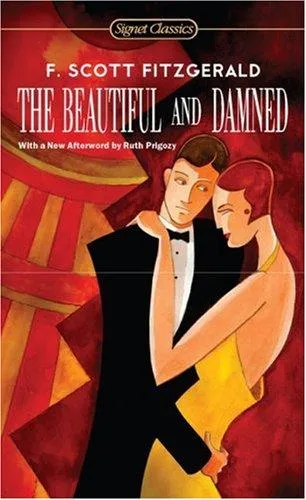The classic novel of greed and vice from F. Scott Fitzgerald. Set in an era of intoxicating excitement and ruinous excess, changing manners and challenged morals, F. Scott Fitzgerald’s second novel chronicles the lives of Harvard-educated Anthony Patch and his beautiful, willful wife, Gloria. This bitingly ironic story eerily foretells the fate of the author and his own wife, Zelda—from its giddy romantic beginnings to its alcohol-fueled demise. A portrait of greed, ambition, and squandered talent, The Beautiful and Damned depicts an America embarked on the greatest spree in its history, a world Fitzgerald saw “with clearer eyes than any of his contemporaries.” By turns hilarious, heartbreaking, and chillingly prophetic, it remains one of his best-known works, which Gertrude Stein correctly predicted “will be read when many of his well-known contemporaries are forgotten.” Tobias Wolff
F.Scott Fitzgerald
F. Scott Fitzgerald was an American novelist and short story writer known for his works that captured the glitz and glamour of the Jazz Age. His most notable works include "The Great Gatsby," a novel that explores themes of wealth, love, and the American Dream, and "Tender is the Night," a novel that delves into the complexities of human relationships.
Fitzgerald's writing style is characterized by his lyrical prose, keen observations of society, and his ability to create vivid and dynamic characters. He is often credited with portraying the decadence and excess of the Roaring Twenties with elegance and insight.
Fitzgerald's contributions to literature include his exploration of the American Dream, the impact of wealth and social status on individuals, and the complexities of human nature. His works have had a lasting influence on the literary genre of the modernist novel and continue to be celebrated for their timeless themes and enduring relevance.
Overall, F. Scott Fitzgerald is remembered as one of the most iconic writers of the 20th century, with "The Great Gatsby" standing as his most famous and enduring work.





